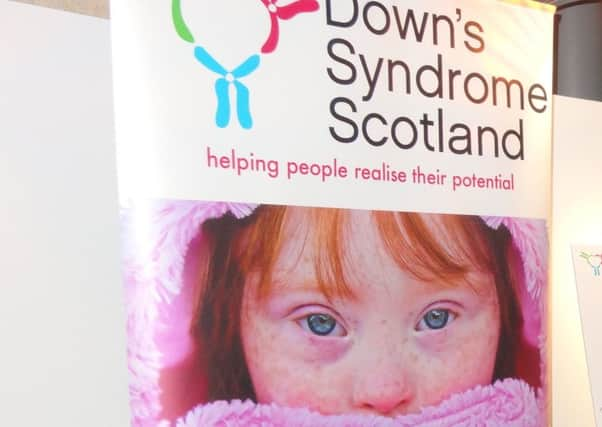Report reveals NHS failing Down's syndrome patients


Down’s Syndrome Scotland, which focuses solely on people with Ds and their families, received feedback from more than 400 members on their experiences within NHS-funded health centres, GP practices and hospitals.
The findings of the research were discussed yesterday at a special event at the Scottish Parliament, attended by Maureen Watt, minister for mental health, as well as health professionals, MSPs, Down’s Syndrome Scotland representatives and families/carers.
Advertisement
Hide AdAdvertisement
Hide AdInconsistency in the level of care was highlighted as a key concern, with standards varying from one health institution to the next. The lack of provision of regular health checks for patients with Down’s syndrome was identified as a central issue. People living with Ds often have additional health needs, from heart problems and poor hearing to thyroid conditions and dementia. The Royal College of General Practitioners (RCGP) recommends that people with Down’s syndrome require a minimum of one health check per year.
However, the research reveals that more than 25 per cent of children in Scotland with Down’s syndrome are not being seen every year and 50 per cent of parents/carers of an adult with Ds are not even aware of the requirement for annual health checks.
More than one in five parents/carers of an adult with Down’s syndrome also say checks such as tests for thyroid conditions or eye checks never take place, demonstrating a lack of consistency in the provision of health checks across different health boards. Respondents also point to the difficulty in securing appointments with specialists and long waiting times – one patient had to wait more than six months for dental surgery.
Poor communication and negative attitudes among some health professionals towards people with Down’s syndrome and their families were also revealed in the report, particularly towards expectant mothers and new parents. Comments describe poor attitudes from midwives, health visitors, nurses and consultants during ante and post-natal care. Some mothers felt they were bullied into having an amniocentesis test and there was a general lack of information and support at the point of diagnosis.
Sarah Van Putten, deputy chief executive, Down’s Syndrome Scotland said: “Our research has identified several factors which facilitate positive experiences for children and adults with Down’s syndrome and their families. Professionals who are caring, respectful with good communication skills and an understanding what it means to live with Ds, can make all the difference.”.
She added: “Over the past couple of years, the Scottish Government has worked towards improving the quality of life of people with Down’s syndrome, through the publications of important strategies. Nonetheless these will likely fail unless more consideration is given to the implementation of these policies through improved staff knowledge and practice.”
A lack of knowledge among health professionals on how to communicate with people with Down’s syndrome and the use of negative terminology and ‘labelling’ is a source of concern highlighted in the report. Parents/carers are hurt by the lack of first person language and the use of negative terms such as – “but he’s a Down’s baby/kid” or “they” when referring to their child.